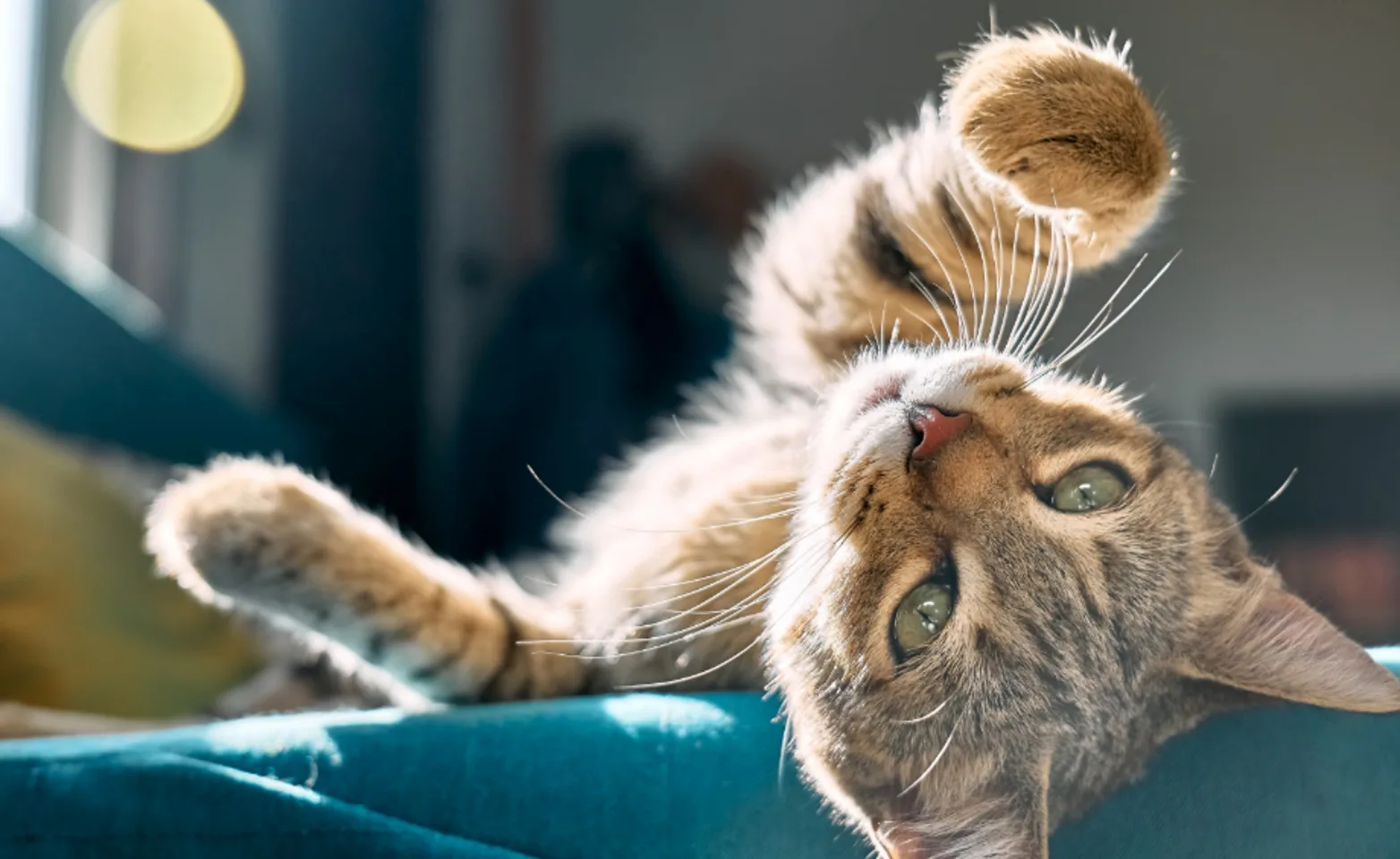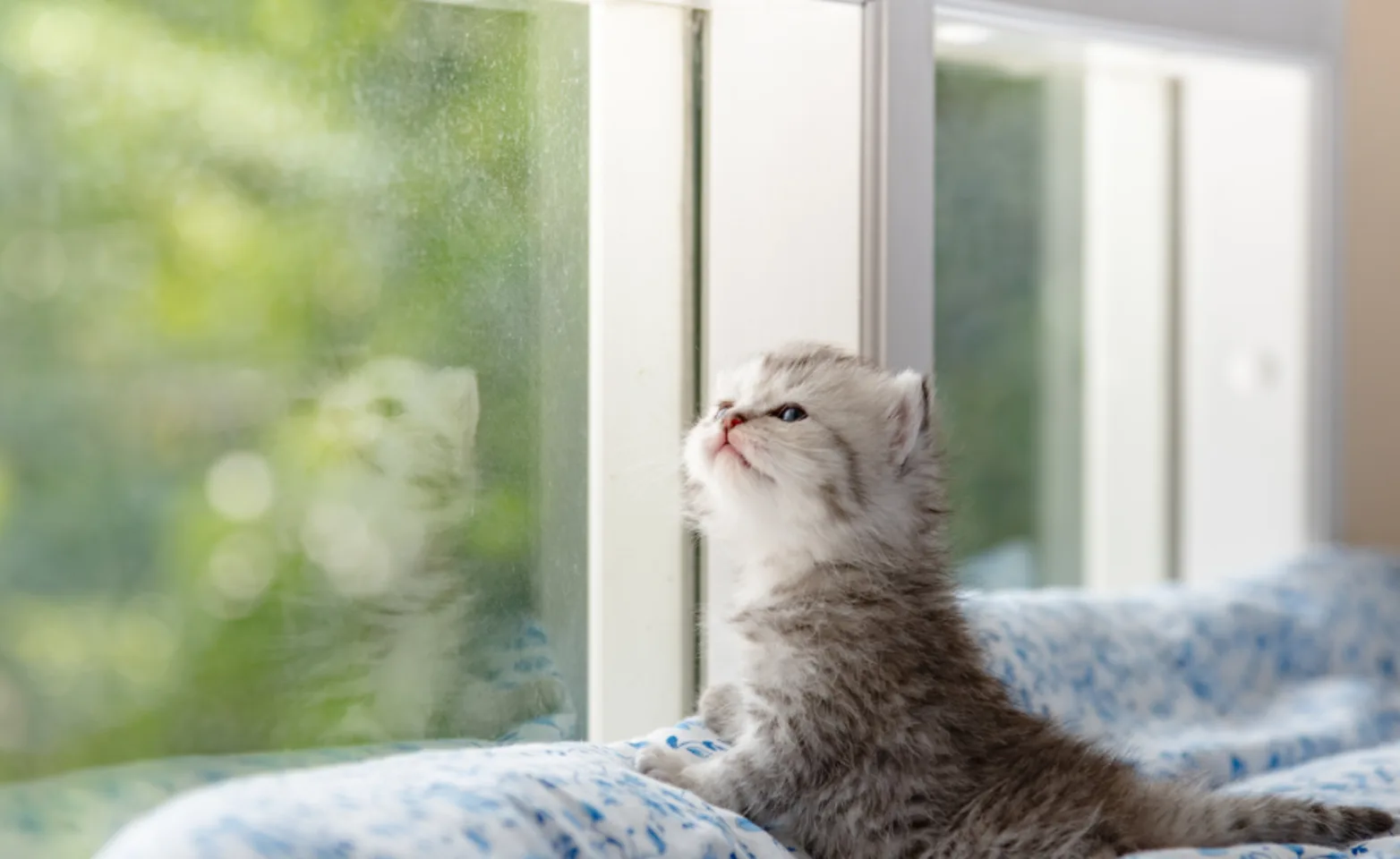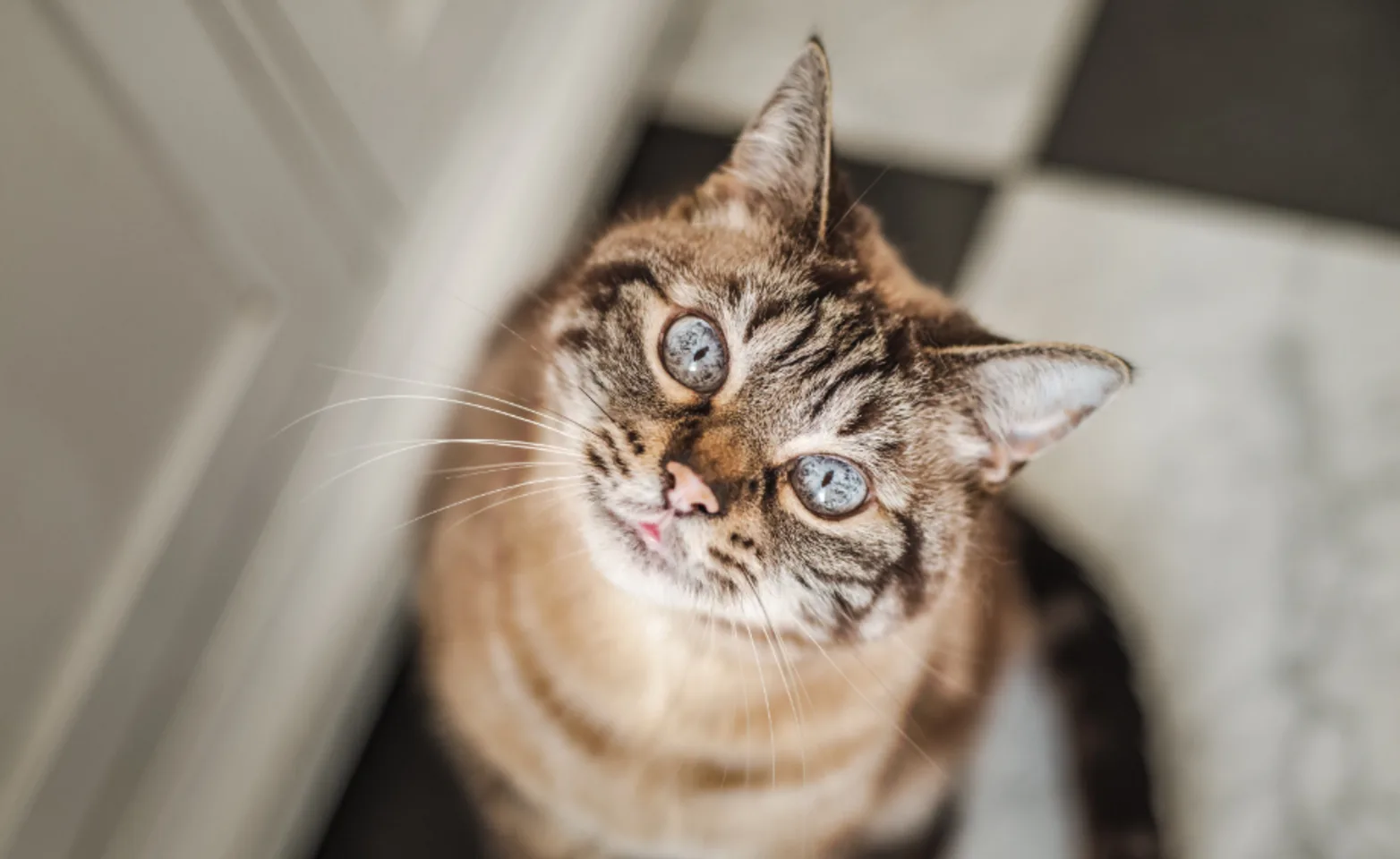The Paw Patch Place
Choosing the Right Box and Litter
Start your kitten off right with an appropriate litter box. A plastic box is usually the most practical and easy to clean. Make sure the sides are low enough that your kitten can easily climb in and out. Since some kittens dislike scented litter, it is best to start with unscented clay or clumping litter. Most kittens will automatically use kitty litter rather than eliminating (going to the bathroom) on other surfaces, except possibly for the soil of a potted plant. Keep plants out of your kitten’s reach or cover the soil with rocks or pinecones.
The box should be placed in a relatively quiet area of your home where your kitten can have some privacy. Place the box away from household items that make startling noises, such as the washing machine, radiator, furnace or refrigerator, and use a baby gate with a kitty door to keep the box away from children and/or dogs. Make sure that it is easily accessible, especially from your kitten’s sleeping area. If you a multiply cats in the home you should have one more litter box than the number of cats. So if you have 3 cats you should provide 4 litter boxes.

Let the Training Begin
At first, you must closely supervise your kitten to help direct him to use the litter box at the appropriate time. Keep the box within your kitten’s sight to ensure that he uses it every time. When he stops playing and begins to sniff around, gently pick him up and place him in the box. Lightly praise him for sniffing and scratching in the box and give him loads of praise and/or a small treat when he eliminates in the box. Keep the box clean so he will want to return to use it.
When you cannot directly supervise your kitten, confine him to a cat-proofed room with his litter box. Follow these steps for at least two weeks or until your kitten regularly uses the litter box on his own.
To help your cat feel comfortable around the litter box, try to prevent anything unpleasant from happening while he is near or in the box. You should never give your cat medicine or scold him while he is near the box.
Common causes of house soiling include:
The litter box is not cleaned frequently enough
Your kitten was frightened in or near his litter box
The litter box was moved from a quiet to a noisy area
A change in the kind of litter
Scented litter additives or odor from cleansers/deodorants
Medical problems (i.e. infection, urolithiasis, and cystitis)
Never punish your kitten for eliminating outside of his litter box. Punishing him will only make the problem worse and may cause your kitten to fear you, especially if you smack him or rub his nose in the mess. Rather, address the above conditions and, if necessary, return to the basic training steps.
Most cats will not soil the area where their food and water are placed so you may try moving your cat’s food and/or water bowl to an area where he has previously soiled as a deterrent. You can also decrease the appeal of a previously soiled area by placing a sheet of plastic carpet runner, double-sided tape, an aversive odor (deodorized soap, perfume) or a motion detector alarm in the area.
If your kitten continues to eliminate outside of his litter box, take him to your veterinarian for a complete physical examination and possibly laboratory tests to ensure that he has no medical problems. Medical problems that may be irritating and cause your cat to avoid the litter.

Spraying
As your kitten matures, he or she may begin to spray (urinate on vertical surfaces such as walls or furniture). Cats are very territorial and they mark their territory as a warning to others. Neutering (male and female cats) should eliminate most spraying behavior, but some neutered cats do spray. Ask your veterinarian for advice if your cat continues to spray after neutering.

Controlling Litter Box Odor
A covered litter box can help control the odor in your home as well as be helpful for kitties with poor aim. You can train a reluctant cat to use a covered litter box by placing a large cardboard box over his litter box. Gradually decrease the size of the box until it is the same size as the box cover and then make the switch.
